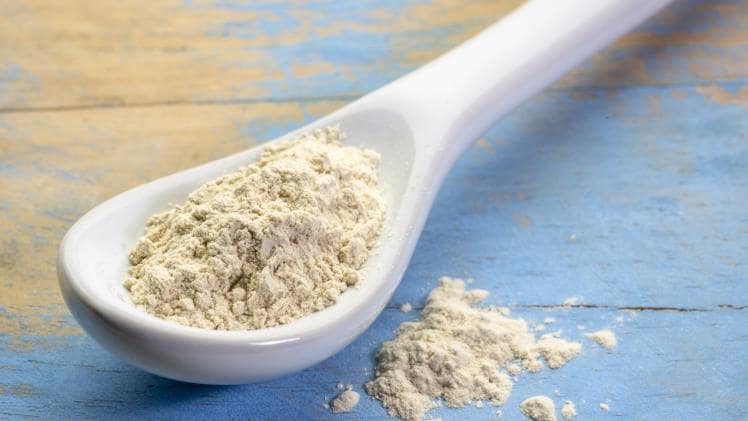Aside from its anti-inflammatory and antioxidant properties, Ashwagandha is also packed with protein, iron, glucose, nitrate, potassium, and flavonoids. While it may not be directly addressing hair health, this herb may help with some scalp problems. It is generally consumed as a supplement or in the form of tea. It can also be found in some foods. Read on to learn more about this herb and its benefits for your scalp.
Side effects of Ashwagandha
As with any herbal remedy, there are some potential side effects of ashwagandha for scalp conditions. The plant may cause an increase in thyroid hormones and interfere with certain thyroid medications, so it’s best to check with a doctor before taking it. Ashwagandha also increases testosterone, which can be dangerous for people with hormone-sensitive prostate cancer. People with high blood pressure should avoid Ashwagandha, and pregnant women should avoid it altogether.
As with any herbal remedy, the best place to start is with the most common side effects – inflammation and itchiness. Ashwagandha has anti-inflammatory properties that may help with your scalp irritation, as it has a natural ability to reduce inflammation. Some other possible side effects include thyrotoxicosis, a dangerous condition where thyroid hormone levels are too high. If you suffer from thyroid-related hair loss, you should consult a physician before taking this herb.
Side effects of Ashwagandha on hyperthyroidism
As an adaptogen, ashwagandha has a variety of medicinal properties, including reducing stress and helping to reduce the symptoms of a variety of medical conditions. Phytochemicals are the unique compounds found in plants that serve a specific function, and ashwagandha is no different. It works as an immune system for plants, prevents harmful insects from eating them, and promotes rapid growth.
Despite being used to treat a wide range of conditions, ashwagandha can irritate the scalp and cause erectile dysfunction. It also stimulates the production of testosterone, which improves sperm quality and vigor in men. Additionally, ashwagandha helps men combat depression. In addition to treating scalp irritation, ashwagandha is effective in improving sperm count, promoting male fertility, and decreasing erectile dysfunction.
Side effects of ashwagandha on hair follicles
The herb Ashwagandha has many beneficial effects on your scalp and hair. Its antioxidant properties fight stress and protect hair follicles from free radical damage. It is also rich in antioxidants, which help prevent follicular damage and stimulate the production of nitric oxide. High levels of cortisol in the body cause follicular damage and contribute to hair loss. By balancing these levels, Ashwagandha helps to prevent telegenic effluvium and promote hair growth does minoxidil work on hairline.
Ashwagandha increases the production of DHEA, a natural antioxidant that fights free radicals. It promotes healthy hair growth by increasing the production of collagen and sebum. It can even help prevent the effects of sun damage and improve scalp elasticity. Ashwagandha has also been linked to reduced inflammation and improved skin quality. It is an excellent herbal supplement for people suffering from scalp irritation, itching, and dandruff.
Side effects of ashwagandha on gastric ulcers
If you’re experiencing symptoms of a gastric ulcer, you may be wondering whether you can use ashwagandha. This herb has been used in Ayurvedic medicine for centuries. It is said to have several health benefits for both men and women. Although ashwagandha is not currently a medically tested drug, it is believed to be safe for most individuals.
It is a plant known scientifically as Withania Somnifera, also known as Indian Ginseng. It has yellow flowers and red berries. Ashwagandha is extracted from the entire plant. It has several medicinal properties in Ayurvedic medicine, including reducing gastric ulcer pain and improving digestive health. However, several side effects should be taken into consideration before using ashwagandha for this condition.
Side effects of ashwagandha on skin irritation
The side effects of ashwagandha on skin and scalp irritation are rare, but they can be unpleasant. However, if you are prone to skin rashes, you should avoid ashwagandha. As it is related to nightshade plants, you should avoid it if you have any allergies. However, it should be noted that the plant can exacerbate symptoms of other medications and conditions.
Conclusion
Ashwagandha is traditionally ingested in the form of powder or heated milk. One-quarter of One-quarterof of the herb is taken daily, and the dosage depends on the severity of the symptoms. However, Ashwagandha is not recommended for pregnant women or stomach ulcer patients, as it can worsen their condition. It is also not recommended for pregnant women and those who are on a high-fiber diet.

